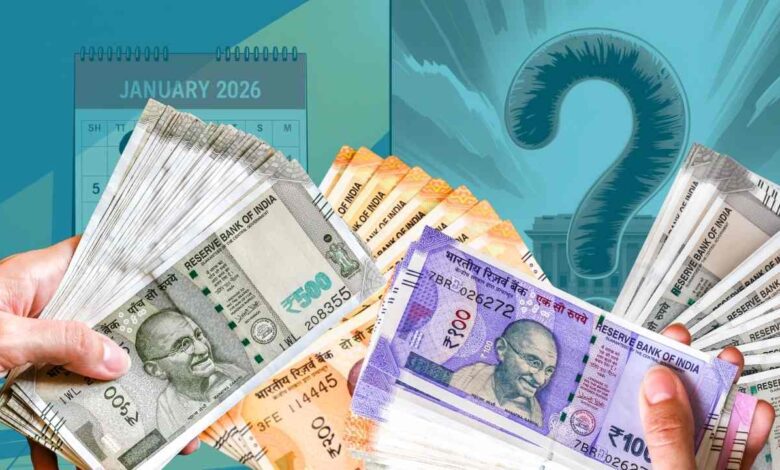8th Pay Commission: Will Government Employees’ Salaries Double? What Will the Fitment Factor Be?

8th Pay Commission: Great news for Central Government employees! The buzz around the 8th Pay Commission is getting louder. As the term of the 7th Pay Commission comes to an end, work on framing the new commission has begun, promising significant changes for nearly 1 crore central government employees and pensioners. Let’s dive into the details.
When Can the 8th Pay Commission Be Implemented?
The tenure of the current 7th Pay Commission concludes on December 31, 2025. It is widely expected that the 8th Pay Commission will be implemented from January 1, 2026. Although the process of forming the commission and submitting its recommendations might take some time, employees are hopeful for good news at the start of the new year.
Fitment Factor: The Key to Your Salary Hike
The most critical aspect of any Pay Commission is the Fitment Factor. This multiplier is used to determine the basic pay of employees. The 7th Pay Commission had a fitment factor of 2.57, which resulted in a substantial salary increase for employees.
For the 8th Pay Commission, various fitment factors are being discussed. According to experts, this factor could range from 1.92 to 2.86. Some employee unions are even demanding a fitment factor as high as 3.86. If the government agrees to a 2.86 fitment factor, the minimum basic salary could jump from ₹18,000 to approximately ₹51,480, which would be a massive boost.
How Much Can Salary and Pension Increase?
The final amount of the salary and pension hike will depend on the approved fitment factor. Let’s look at a possible scenario:
- If the fitment factor is 2.28:
- Level 3 (Basic Pay ₹24,500): The new basic pay could be around ₹57,456. With allowances like House Rent Allowance (HRA) and Travel Allowance (TA), the gross salary could be close to ₹75,000.
- Level 6 (Basic Pay ₹44,900): The new basic pay could be approximately ₹93,708. After adding other allowances, the gross salary could exceed ₹1,20,000.
- For Pensioners: Pensioners will also see a rise in their pension based on the fitment factor. The minimum pension under the 7th Pay Commission was ₹9,000. With the 8th Pay Commission, this could increase to over ₹25,000.
Other Important Considerations
- DA Arrears: Employees are hopeful about the 18 months of pending Dearness Allowance (DA) arrears from the COVID-19 pandemic. Many believe a positive decision on this might be taken with the 8th Pay Commission.
- Commuted Pension: There has been a long-standing demand to reduce the restoration period for commuted pension from 15 years to 12 years. This issue might be included in the 8th Pay Commission’s terms of reference.
- General Provident Fund (GPF): The future of the GPF scheme for employees who joined before 2004 may also be decided by the new pay commission.
Overall, the 8th Pay Commission holds the promise of new opportunities and financial growth for Central Government employees. While the final decisions rest with the government, it is hoped that the new pay structure will be designed keeping the interests of the employees in mind.

